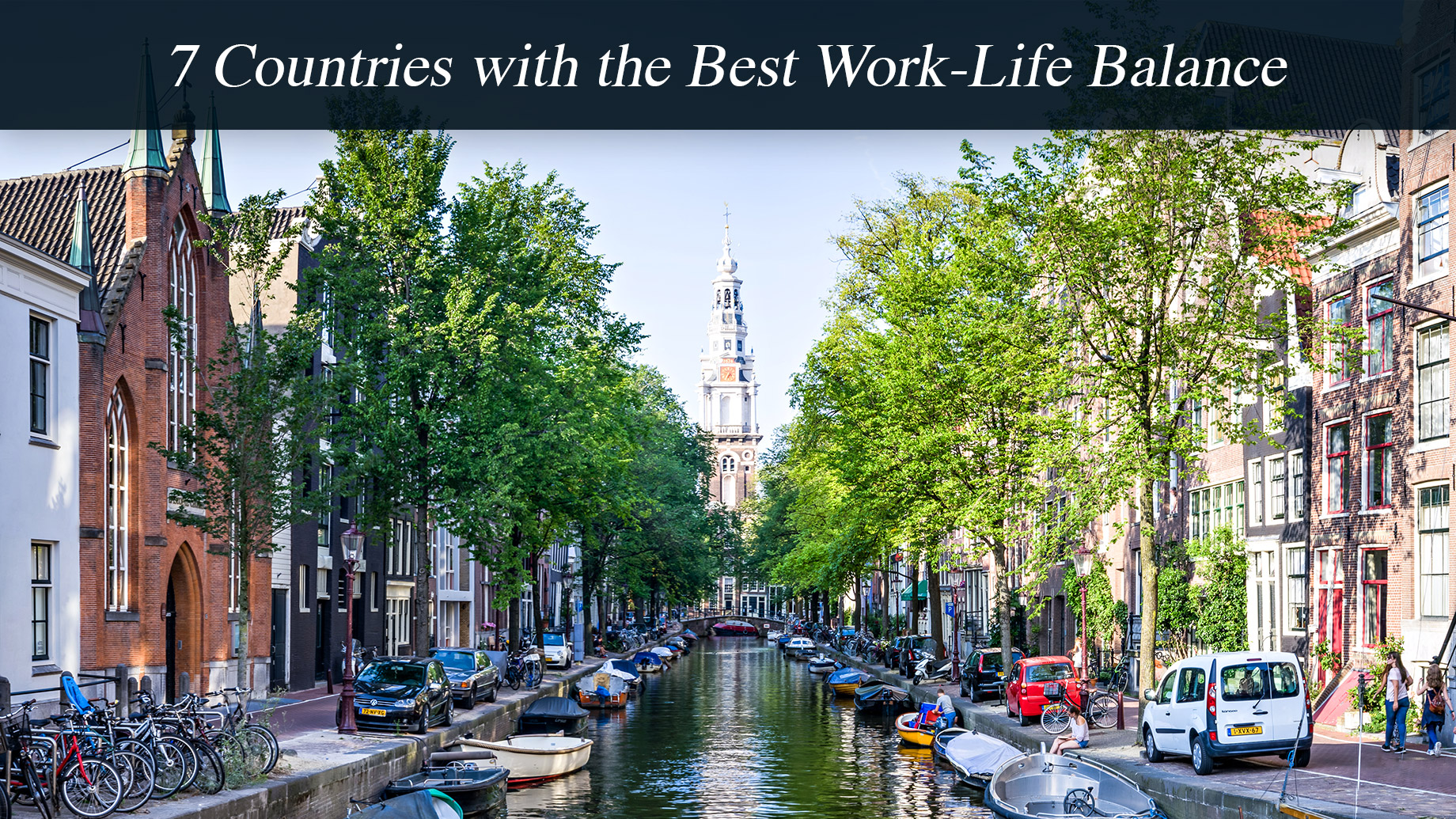
Do you spend most of your days dreaming about your retirement? Many people long for days when you won’t need to worry about work and can go somewhere else, maybe even abroad, to enjoy your free time.
Other people say, why wait, and spend 50 years of your life expecting those days to come? Maybe you could start now!
Retirement is unlikely to be a short-term solution for most people. Nevertheless, maybe you cannot let go of the feeling that you are exhausted, working long hours, and constantly stressed. This scenario is worrisome, but not rare.
In fact, you could even take a quick test online on Mind Diagnostics to quickly and easily find if you are experiencing any symptoms of a mental health condition due to stress and burnout caused by excessive work.
What you probably need is a better work-life balance, for the sake of your mental health and happiness. Many countries around the world take it seriously as a society, but others do not.
Let’s take a look at what work-life balance entails and where on the planet you could have a better work-life balance.
What is work-life balance?
The definition of work-life balance is an acceptable alignment between personal and professional life. It is a state of equilibrium between the demands of these two sides.
In a short summary, it is the ability to fully appreciate the four aspects of your life: work, family, friends, and self.
There are a few reasons why you might experience a poor work-life balance:
- Too much responsibility at work
- Working long hours nonstop
- Not having enough balance of at-home responsibilities with your partner or other family members/housemates
- Not finding the time to disconnect from work and enjoy yourself
How to measure work-life balance?
One way to determine work-life balance is provided by the Organization for Economic Cooperation and Development (OECD), an international organization with 37 member countries that aim to promote economic development worldwide.
To measure work-life balance, the OECD ranks countries according to the time allocated to leisure and personal care, long unpaid working hours, the gender gap in hours worked, and satisfaction with time use.
Other ways to determine your mix are the various online calculators that calculate your work-life balance. You can take free tests online, which are questionnaires you will answer truthfully according to how you are spending your time. These could help indicate if you need to make some changes.
Why is work-life balance important?
It can be unhealthy for someone to over-prioritize work over personal life or, less commonly, personal life over work. Striking a balance will likely lead to improved mental health and satisfaction.
Work-life balance absolutely impacts mental health. Someone with a good work-life balance will remember that they are human and sometimes need a break or just quality time with family and friends.
Life is not always all about productivity, deliverables, and deadlines. We are not machines that need to stay connected 24/7. You must be aware of the signs of fatigue and burnout brought on by poor balance, which can put your mental health at risk.
Countries with the best work-life balance
Some whole countries have reputations for an excellent balance between work and life.
Here are the top 7 countries that have the best work-life balance, based on the OECD Better Life Index:
7. Norway
Norway’s average time devoted to leisure and personal care is around 15.6 hours, and only 2.9% of employees work long hours. The country prioritizes education, in which students choose early what career path they want to take.
6. Lithuania
In Lithuania, similarly to Norway, the population devotes approximately 15.6 hours to leisure and personal care, but only 0.5% of the country’s employees work long hours.
5. France
It is not a surprise that France is ranked on this list, as it is well-known around the world that French people take work-life balance seriously.
In fact, the time devoted to leisure and personal care is 16.4 hours, while 7.7 percent of employees work long hours. They have a five-week minimum of paid vacation time, and the workweek is established by law as having 35 hours.
4. Spain
Although a little less than France, Spanish people devote 15.9 hours to leisure and personal care, but only 4% of them work long hours. Spain has the long and notorious tradition of enjoying a “siesta” after lunch. Do not expect to go shopping in the early afternoon, people take the siesta seriously and continue the work after it.
3. Denmark
In Denmark, people spend around 15.9 hours on leisure and personal care, while 2.3% of them work long hours.
It has the shortest workweek and guarantees many perks for its population to guarantee they have a work-life balance; for example, they provide state childcare for children up to six years of age and the possibility of 52 weeks of paid maternity leave.
2. Italy
Italians spend around 16.5 hours on leisure and personal care, and 4.1% of them work long hours. Italians are known for their long lunches and famous for experiencing life in its most relaxing and enjoyable way.
1. The Netherlands
Less than 1 percent of employees in the Netherlands work long hours (only 0.4%). Plus, they spend around 16.1 hours of their day on leisure and personal care. Taking the time to enjoy the beautiful scenery and impressive cities will be much easier with this kind of work-life balance!